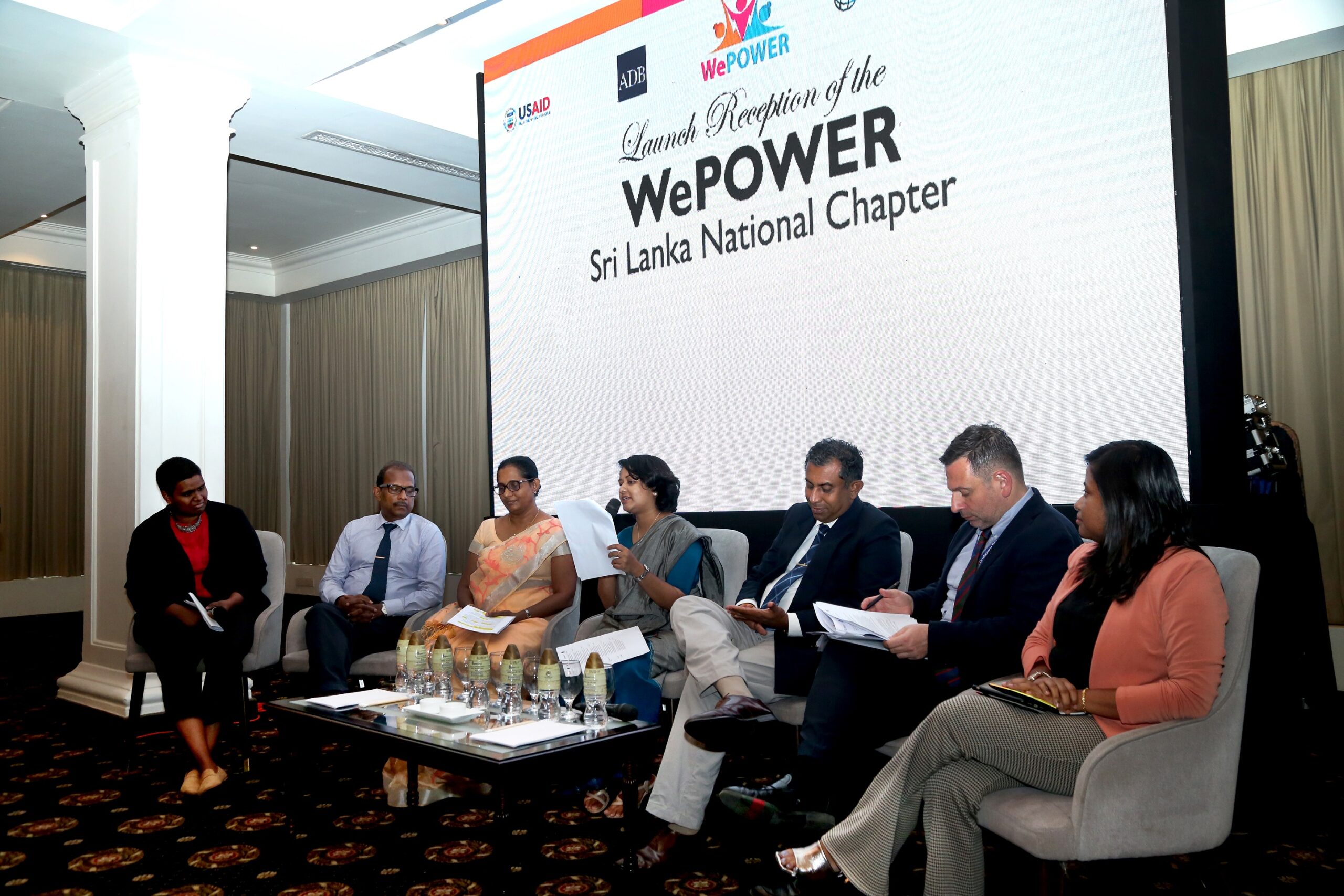Women working in Sri Lanka’s energy sector gained a powerful tool this week to promote their advancement in the industry with the launch of the Sri Lanka National Chapter of WePOWER.
The United States Agency for International Development’s (USAID) Sri Lanka Energy Project and the Asia Development Bank (ADB) collaborated to launch the national chapter, which is affiliated with the regional South Asia WePOWER Network. In addition to promoting women in energy, this World Bank initiative also increases women’s participation in Science, Technology, Engineering, and Mathematics (STEM) education.
The launch featured a panel discussion and engaged power sector stakeholders including utilities, academia, and professional networks to raise awareness about the WePOWER National Chapter and to encourage high-level officials’ support to ensure its sustainability and success. Recent World Bank statistics show women represent only about 13 percent of Sri Lanka’s power sector employment.
“The power sector in Sri Lanka will greatly benefit from workplace diversity and increased participation by women, including in leadership positions,” said Christopher Powers, Director of the USAID’s Economic Growth Office. “Women will be needed to meet the growing talent demand in this sector. Their participation in technical and professional roles can greatly enhance the sector’s effectiveness.”
“The launch of the WePOWER national chapter in Sri Lanka is a timely and exciting development for the country, as well as for its energy sector,” said ADB Country Director Chen Chen. “As we witness a global shift towards sustainable and environmentally friendly sources of energy, Sri Lanka may capitalize on the trend in its economic recovery course. With more women joining the energy sector, we will create a more diverse and better equipped workforce to address the global and local challenges.”
“It is important to think outside the box and challenge ways of doing things in the power and energy sector. But to do so, we should cultivate a culture that celebrates and promotes innovation, critical thinking, and diversity in the energy sector in general,” said Mr. Mapa Pathirana, Secretary Ministry of Power and Energy.
Among its first efforts, Sri Lanka WePOWER plans to conduct training in gender equality and social inclusion and a workshop in May to develop an action plan to create and monitor gender activities with targets and goals under its five pillars: STEM education, recruitment, development, retention, and policy and institutional change.
USAID’s Sri Lanka Energy Program is helping Sri Lanka transform its power sector into a market-based, secure, reliable, and sustainable system by mobilizing investment to deploy advanced technologies, increase flexibility, and enhance competitiveness. The U.S. commitment to help build a power sector for tomorrow is one of many elements of America’s long, strong, and enduring partnership in Sri Lanka, a partnership that has been the foundation of 75 years of close relations and effective work together.

